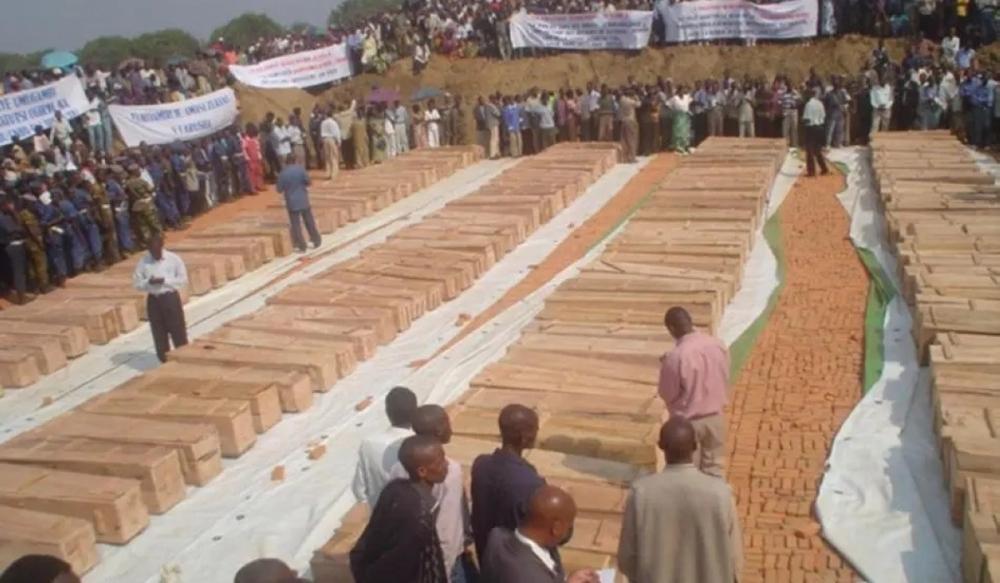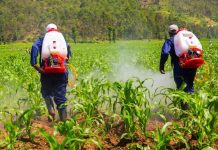Africa-Press – Rwanda. Survivors of a massacre that killed more than 160 Banyamulenge refugees in Gatumba, western Burundi in 2004, have renewed their calls for international action and political will to ensure justice for the victims, ahead of the 21st commemoration of the killings this month.
The Gatumba Refugee Survivors’ Foundation (GRSF)announced that this year’s commemoration due on Wednesday, Augut 13, themed “Honoring the Victims, Seeking Justice, and Combatting Genocide Denial Targeting Tutsi in DR Congo,” will reflect on the night of August 13, 2004, when 166 Banyamulenge civilians, mostly women and children, were massacred and 108 others injured in Gatumba, where they had sought refuge.
The victims, who were under the protection of the United Nations High Commissioner for Refugees (UNHCR), had fled South Kivu in DR Congo due to violence and political oppression.
A joint UN report released in October 2004 concluded the attack was “unequivocally” directed at members of the Banyamulenge community and was both ethnically and politically motivated.
Investigations identified the perpetrators as the PALIPEHUTU-FNL of Burundi, Rwandan genocidal militia FDLR, elements of the Congolese army (FARDC), and Mai-Mai militias.
The PALIPEHUTU-FNL, then led by Agathon Rwasa, openly claimed responsibility for the attack through spokesperson Pasteur Habimana in a BBC interview, according to GRSF.
Desire Rusengo, Chairperson of the survivors’ organisation, said that 21 years later, survivors and victims’ families still endure the pain of unaddressed crimes in a climate of impunity for atrocities against Congolese Tutsi.
He noted that former and current FARDC officers and militia leaders implicated in the massacre remain free, while neither the Congolese government nor international human rights bodies have prioritized accountability.
“The fate of the victims of these worst atrocities depends on the political will and determination of the various actors concerned,” Rusengo said in a statement, describing the killings as “genocide.”
GRSF urged the international community to uphold its promise of justice and bring the perpetrators and their accomplices to trial.
Rusengo stressed that the perpetrators of the Gatumba massacre are known and that the governments of DR Congo and Burundi bear moral and political responsibility. He called on the United Nations, the African Union, and other regional and global bodies to honour their commitment to justice and restore security to allow displaced persons and refugees to return home.
The UN findings note that the ideology behind the Gatumba Genocide mirrored that of the 1994 Genocide against the Tutsi in Rwanda, with attackers chanting slogans such as “exterminate all Tutsis in Central Africa” and “kill these Tutsi dogs.”
While the massacre drew condemnation from the African Union, the European Union, and the United Nations, no criminal trial has been held to date.
Survivors have issued an appeal, urging the international community to fulfil its justice pledges, the UN to prosecute named perpetrators, global bodies to condemn and halt ongoing genocidal plans in the Great Lakes region.
They also demand that DR Congo end targeted attacks and restore security for displaced populations.
Ongoing ethnic attacks
The foundation also warned that the anniversary comes amid continued genocidal violence against Banyamulenge in Fizi, Mwenga, and Uvira in South Kivu, as well as broader attacks on Congolese Tutsi across DR Congo.
The organisation estimates that since April 2017, more than a thousand Banyamulenge civilians have been killed, villages destroyed, livestock looted, and women raped, without any official investigation into the violence.
According to the statement, the situation has worsened since 2022 with the escalation of the M23 rebellion in North Kivu. The foundation accused President Félix Tshisekedi’s administration of legitimizing anti-Tutsi militias under the Reserve Army of Defense (RAD), rebranded as Wazalendo, and arming them alongside the Burundian National Defense Forces (FDNB). Similar violence, it said, is targeted at the Hema community in Ituri, who are associated with Tutsi.
“One would be mistaken to believe that the situations in North Kivu and Ituri are mere coincidences,” Rusengo said.
“The fact is that the underlying causes and motivations of the conflicts there are the same as those linked to the violence against the Banyamulenge in South Kivu. It is about exterminating the Tutsis and all those who resemble them.”
For More News And Analysis About Rwanda Follow Africa-Press






